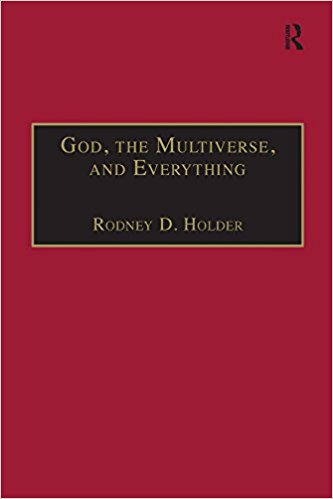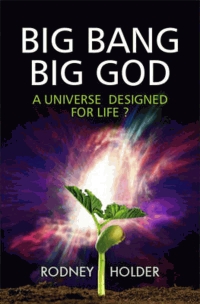@Edward many thanks for your interesting post and questions, this is an extremely complicated topic.
I can’t say that I find anything particularly anti-Christian about the concept of some varieties of multiverse from the standpoint of philosophy, but I would caution you that scientifically speaking the idea as it is commonly presented - different laws of physics in different universes arising from different inflation fields - is bunkum and belongs in the realm of inherently untestable speculation.
Let me ask you firstly: to which “multiverse” model are you referring? There is isn’t just one.
There is for instance the “many-worlds” multiverse stemming from one (among many competing) valid interpretations of Quantum Mechanics which results in parallel universes existing in different spacetimes from our own but with the exact same physics as ours. That multiverse is all about the wavefunction measurement problem, namely because believers in it (a minority of quantum physicists) regard the wavefunction as an objective reality and don’t think that it collapses into a definite state after observation, but rather that it sort of “splits” to become both a wave and a particle but in separate, alternate realities or parallel histories, essentially. This has to do with fundamental particle physics.
In essence, it consists of the weird but theoretically possible idea that the universe splits into parallel worlds at every quantum measurement.
The other types of multiverses have nothing to do with Quantum Mechanics but rather arise from cosmic inflation and are known as “cosmological multiverse” models because they are thought up by cosmologists as opposed to quantum physicists.
These multiverses comprise of “bubbles” or rather causally disconnected bubbles within the one space-time - our space-time.
One form of this cosmological multiverse - the silly but popular one in the public imagination - rests upon the spurious, unsubstantiated idea of a string landscape in M-Theory which makes it possible to conceive of higher dimensions and universes with utterly different laws of local physics and constants.
The most basic kind of cosmological multiverse, however, is one which arises from a single inflation field and leads to the exact same physical constants in each of the causally disconnected “patches” of space. We call this a “Type 1” cosmological multiverse.
I don’t know of anyone who finds this notion in the least bit controversial – the consideration that there are likely regions of the universe beyond the particle horizon which we can’t observe but where the same underlying physics applies.
Consider this statement from the renowned cosmologist Professor George Ellis in 2014 article in Scientific American:
Why the Multiverse May Be the Most Dangerous Idea in Physics
Proof of parallel universes radically different from our own may still lie beyond the domain of science
“Astronomers are able to see out to a distance of about 42 billion light-years, our cosmic visual horizon. We have no reason to suspect the universe stops there. Beyond it could be many—even infinitely many—domains much like the one we see. Each has a different initial distribution of matter, but the same laws of physics operate in all. Nearly all cosmologists today (including me) accept this type of multiverse, which Max Tegmark calls “level 1.”
Yet some go further. They suggest completely different kinds of universes, with different physics, different histories, maybe different numbers of spatial dimensions.”…”
The first type of multiverse is not only uncontroversial – it doesn’t aid any arguments, whereas the string landscape multiverse (with the different vacua and physics in each pocket universe) is the one that can be utilized as a convenient excuse for our inability to calculate the observed values of the cosmological constant and the higgs mass – the so-called “fine-tuning” issues.
This multiverse model relies on string theory and eternal inflation. And its utterly baseless pseudo-science IMHO.
For me to properly answer your question, therefore, I would first have to know which multiverse you are talking about because my response would be significantly different based upon the multiverse in question.
The string landscape inflationary multiverse - where you have the different vacua with the varying laws of physics in each bubble universe - is inelegant, explains nothing, makes no testable predictions, relies upon equally shoddy theoretical foundations and is offensive to reason in my humble opinion. So if you define Christianity as the religion of the incarnate Logos - Reason - then yes, that kind of multiverse is offensive to Christianity and to any rational worldview that claims to be working with testable scientific predictions.
However, if you mean the Quantum Mechanical “multiverse” or the “level 1” cosmological multiverse with the same physics appying in each “pocket universe”, then no - there is nothing offensive to reason or Christianity about these kinds of multiverses, or at least not that I can see anyway.

